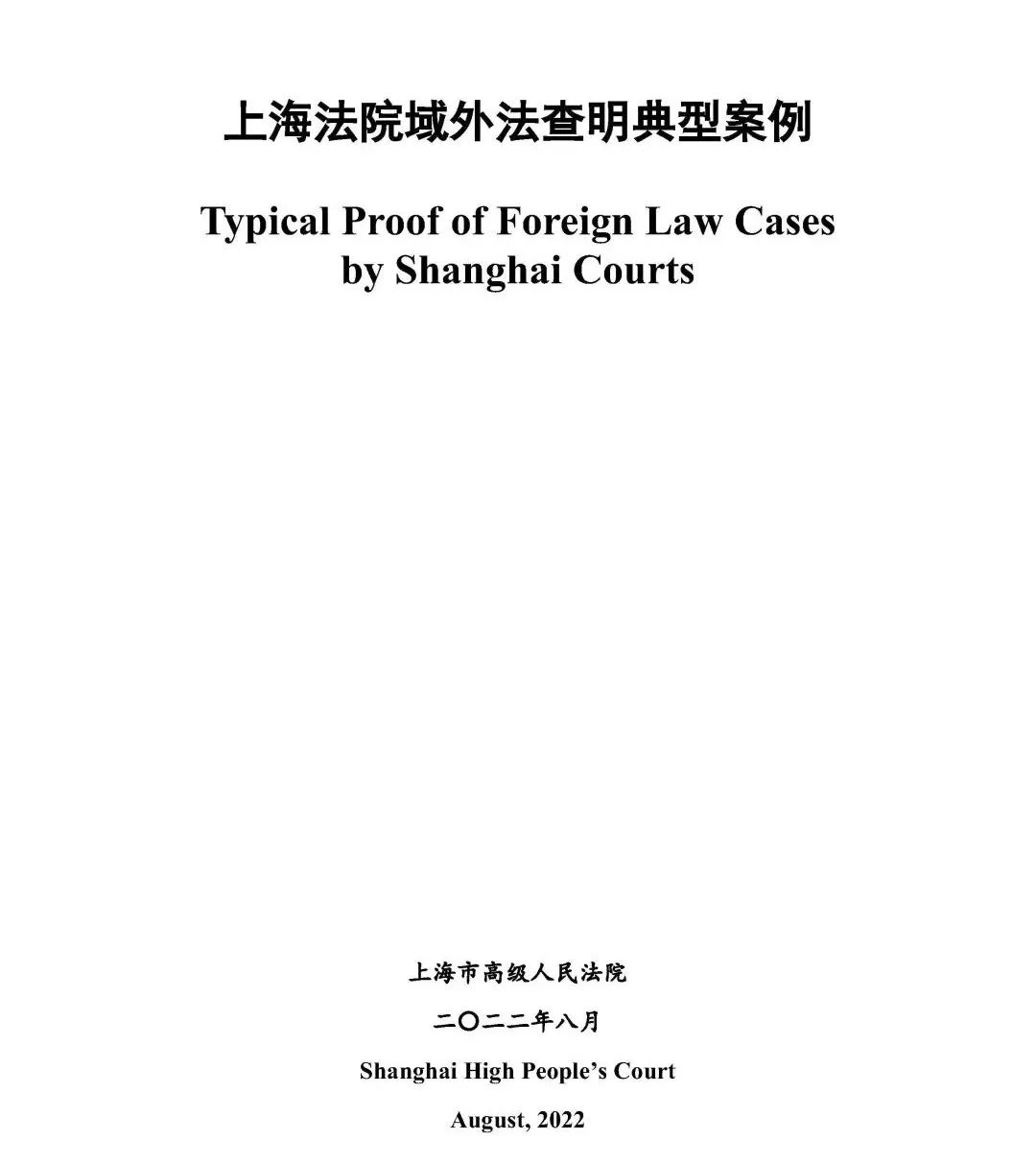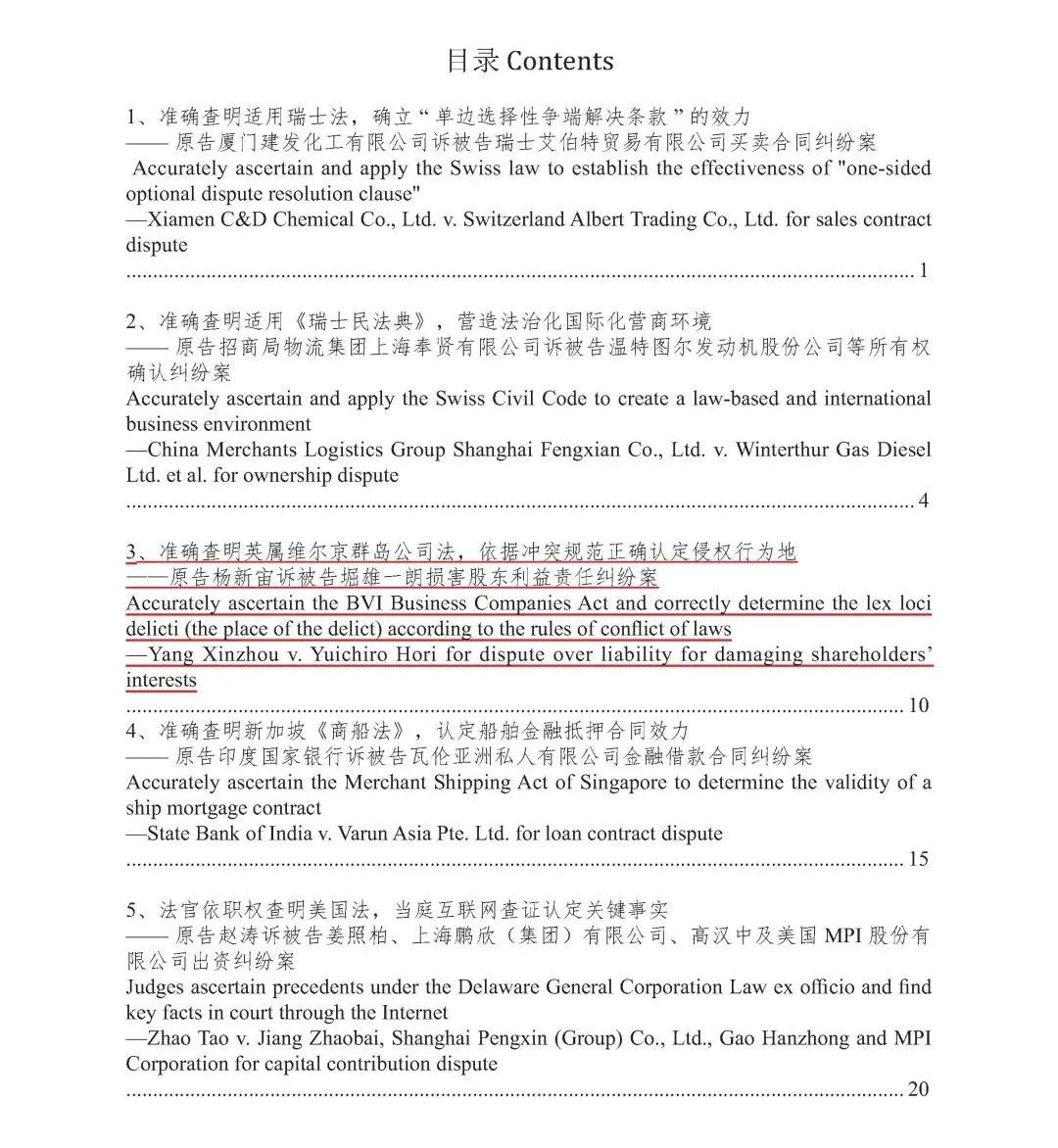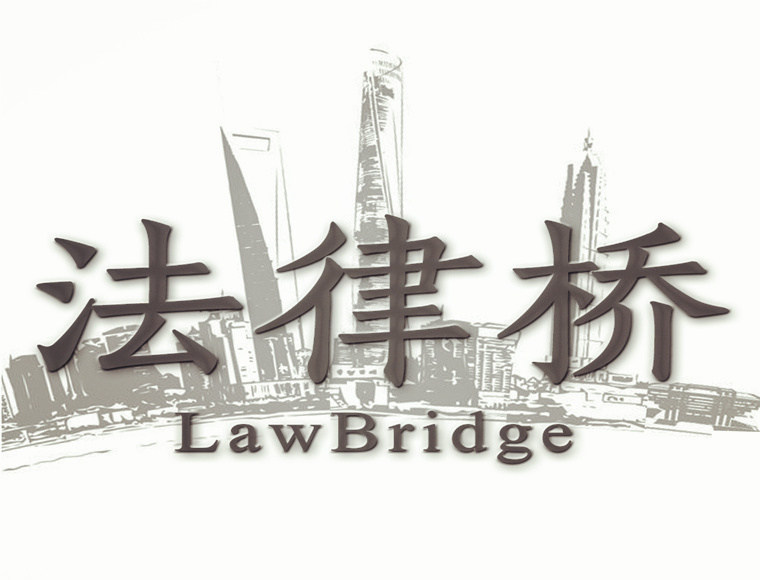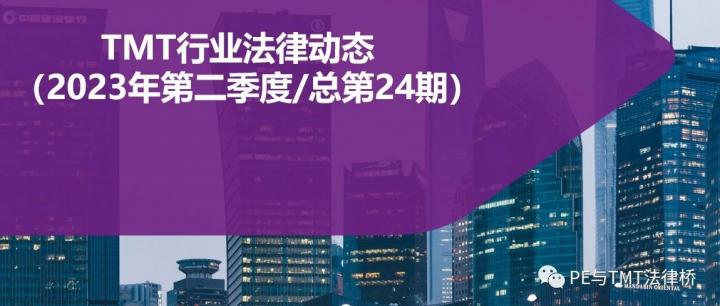The case represented by Yang Chunbao's lawyer team was selected for the "Typical Cases of Shanghai Court's Extraterritorial Law Investigation"
Recently, the Shanghai Higher People's Court held a press conference to release the "White Paper on Foreign and Hong Kong, Macao, and Taiwan Related Commercial Trials by the Shanghai Higher People's Court (2017-2021)", and for the first time, released the "White Paper on Identifying Extraterritorial Law in Shanghai Foreign Commercial Trials (2015-2021)" and typical cases. The Shanghai High Court has released a total of 9 typical cases of extraterritorial law investigation, covering the achievements of the United States, Singapore, Switzerland, Japan, the Hong Kong Special Administrative Region of China, the British Virgin Islands, and other extraterritorial law investigation and application practices in recent years in commercial trials involving foreign affairs and Hong Kong, Macao, and Taiwan in Shanghai.
The case of plaintiff Yang Xinzhou and defendant Horie Xiong Yilang, represented by Lawyer Yang Chunbao and Lawyer Han Huifu, regarding the liability dispute for damaging shareholder interests, has been selected as a typical case of Shanghai Court's extraterritorial law investigation (the full text of the case is attached). The case went through first and second instance, retrial, and retrial for over eight years. Finally, the plaintiff Yang Xinzhou's lawsuit was fully supported. Regarding the tortuous litigation process of this case and our agency approach, please refer to the "Proxy Record of the First BVI Company Director Harming Shareholders' Interests Case in a Chinese Court". You can also watch it on Bilibili: https://www.bilibili.com/video/BV18Z4y1i7EE/?spm_id_from=333.999.0.0
At this press conference, the Shanghai High Court released the "White Paper on the Identification of Extraterritorial Law in Shanghai Foreign Commercial Trials (2015-2021)" and typical cases for the first time, summarizing the situation of Shanghai courts' identification of extraterritorial law over the past seven years and the effectiveness of related mechanism construction.

The press conference reported that when hearing commercial cases involving foreign affairs or Hong Kong, Macao, and Taiwan, if the parties agree to choose a certain extraterritorial law or determine the application of extraterritorial law based on conflict of law norms, it is necessary to identify the content of extraterritorial law through certain methods and channels. Whether extraterritorial law can be identified and correctly applied directly affects the determination of the substantive rights and obligations of the parties involved, and affects the final verdict of the case. Due to the complexity and difficulty in accurately understanding of extraterritorial law, it has become a "bottleneck" problem that has long constrained the efficiency of commercial trials involving foreign affairs, Hong Kong, Macao, and Taiwan.
Since 2015, the Shanghai courts have generally shown the following five characteristics in identifying cases involving foreign affairs and commercial trials involving Hong Kong, Macao, and Taiwan under extraterritorial laws:
Firstly, the distribution of cases is extensive, and the identification of laws tends to become more refined and complex, reflecting the comprehensive participation of foreign and Hong Kong, Macao, and Taiwan commercial entities in Shanghai's investment, finance, trade, and other fields. The judicial demand for the application of extraterritorial laws in foreign and Hong Kong, Macao, and Taiwan commercial trials is constantly increasing.
The second is to broaden the channels of investigation, which reflect cooperation and diversity. In practice, there are both ways for judges to use internet platforms to search for extraterritorial laws in court, and ways for parties to provide extraterritorial laws through reasonable means such as publicly publishing legal academic books and effective domestic judicial documents.
The third is to determine the legal subject of the investigation, which is provided by the parties and combined with the court's investigation. The Shanghai court's extraterritorial legal investigation of commercial cases involving foreign affairs and Hong Kong, Macao, and Taiwan can be divided into direct investigation by the parties, expert investigation commissioned by the parties, expert investigation commissioned by the court, and direct investigation by judges according to the channels.
The fourth is that the results of identification are diverse, reflected in both written laws and extraterritorial precedents. According to the research samples selected from the sample of identified cases, the demand for extraterritorial written law identification accounts for 68.1%; The demand for case investigation accounts for 25.23%, and the investigation of procedural matters such as litigation costs and arbitration accounts for 4.7%; The identification of international treaties and practices accounted for 1.97%.
The fifth is to identify the professional expertise of personnel, and experts and service institutions play an important role. When both parties have different understandings of extraterritorial law, the court entrusts extraterritorial law experts to supplement the identification of extraterritorial laws through expert opinions, providing strong support for the accurate application of laws in foreign-related and Hong Kong Macao Taiwan commercial cases. As of the end of 2021, the Foreign Law Investigation and Research Center of East China University of Political Science and Law has accepted commissions from Shanghai courts to investigate over 20 cases.

The following is the full text of the case of plaintiff Yang Xinzhou v. defendant Horie Xiong Yilang's liability dispute for damages to shareholder interests:
Accurately Identifying the Company Law of the British Virgin Islands and Accurately Identifying the Place of Tort Based on Conflict Norms - Case of Plaintiff Yang Xinzhou v. Defendant Hori Xiong Yilang's Liability Dispute for Damage to Shareholders' Interests
III. Accurately ascertain the BVI Business Companies Act and correctly determine the lex loci delicti (the place of the delict) according to the rules of conflict of laws
—Yang Xinzhou v. Yuichiro Hori for dispute over liability for damaging shareholders’ interests
[Basic Facts]
[Court Ruling]
[Typical Significance]
This case concerns the application of law for company-related delict. The delict occurred in the British Virgin Islands. However, according to the relevant provisions on the application of law in delict cases, if the parties concerned have a common habitual residence, the law of common habitual residence shall apply. One of the disputed issues in this case is whether both parties take Shanghai as their common habitual residence? Should the law of the British Virgin Islands or the law of China be applied in this case? Yuichiro Hori provided evidence that he had real estate and worked in Shanghai, but the entry-exit records showed that he frequently traveled between Japan and Shanghai during the occurrence of the delict. Therefore, the court found that his evidence was insufficient to prove that his habitual residence was Shanghai. The court finally ascertained the relevant laws of the British Virgin Islands and rendered a judgment according to the legal provisions on the official website of the British Virgin Islands, the translation submitted by Yang Xinzhou and the legal opinion issued by the local lawyer entrusted by Yang Xinzhou. This case is of great reference value for the application of law and the finding of delict in similar cases.
Author
Lawyer Yang Chunbao
First Class Lawyer
Senior Partner of Dacheng (Shanghai) Law Firm

Mail:
chambers.yang@dentons.cn
The leader of the private equity and investment fund professional group and TMT industry group at Beijing Dacheng (Shanghai) Law Firm, the deputy director of the Dacheng China Science and Technology Culture Leisure and Entertainment Professional Committee, and a member of the Shanghai Foreign Legal Talent Pool. Bachelor of Law from Fudan University (1992), Master of Law from Sydney University of Science and Technology (2001), and Master of Law from East China University of Political Science and Law (2001).
Lawyer Yang has been practicing for 27 years and has been engaged in legal services for private equity, investment and financing, and mergers and acquisitions, covering industries such as TMT, big finance, big health, real estate and infrastructure, exhibition industry, and manufacturing. Since 2004, he/she has received multiple special recommendations or reviews from The Legal 500 and Asia Law Profiles. Since 2016, he/she has been selected as one of the "100 Outstanding Lawyers in Chinese Business" by the internationally renowned legal media China Business Law Journal and has been awarded the title of "China's Annual Corporate Law Expert" by Leaders in Law -2021 Global Awards, Received multiple awards such as the "China TMT Lawyer Award" and "China Mergers and Acquisitions Lawyer Award" by Lawyer Monthly and Finance Monthly. Qualified as an independent director of a listed company, he is a part-time professor at the School of Law at East China University of Science and Technology, a part-time supervisor at the School of Law at Fudan University, a part-time graduate supervisor at East China University of Political Science and Law, a lecturer in the private equity CEO class at Shanghai Jiao Tong University, and a lecturer in the multinational business talent training class at the Shanghai Municipal Commission of Commerce. Published There are 16 monographs including "Practical Operations and Case Analysis of Full Legal Risk Prevention and Control in Enterprises", "Complete Operation Guidelines for Corporate Investment and Financing Model Processes", and "Practical Operations of Risk Prevention and Control in Private Equity Investment Funds". Lawyer Yang's practice areas include companies, investment mergers and private equity funds, capital markets, TMT, real estate and construction engineering, as well as dispute resolution in the aforementioned fields.
PT&TMT LawBridge

Presiding lawyer: Yang Chunbao, first-class lawyer
Phone/WeChat: 1390 182 6830
Business contact and submission email:
chambers.yang@dentons.cn
Address: 9th/24th/25th floors, Shanghai Global Financial Center, No. 100 Century Avenue, Shanghai























































First, please LoginComment After ~